“She’s Faking It”: Nasty Boomer Yells At Dying Woman To Get Up From Her Wheelchair
Accessibility ensures that all people get to experience life’s special moments. However, one woman’s attempt to make her terminally ill sister’s dream come true was met with an unsettling display of entitlement.
A few days ago, Reddit user Dentgirl shared a story on r/BoomersBeingFools about taking her sibling, who is gravely ill and wheelchair-bound, to see her favorite band.
But despite careful planning, their evening took a shocking turn when an aggressive stranger confronted them, accusing the sister of “faking it” and demanding they move.
This woman took her wheelchair-bound sister to a concert, hoping to enjoy a special night together
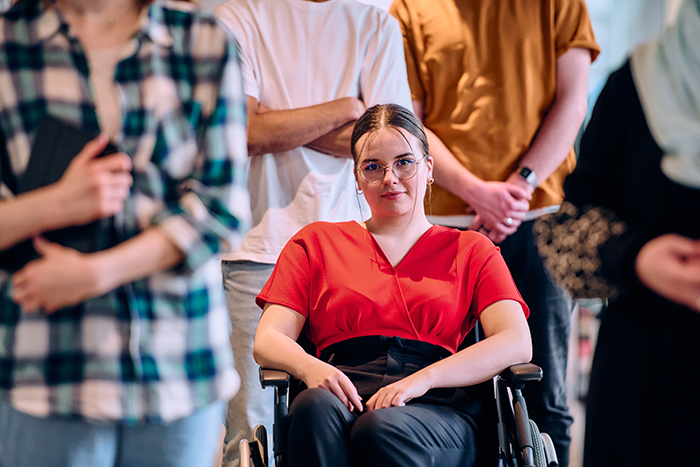
Image credits: dotshock / envato (not the actual photo)
However, a rude stranger threatened to spoil their night over a petty disagreement
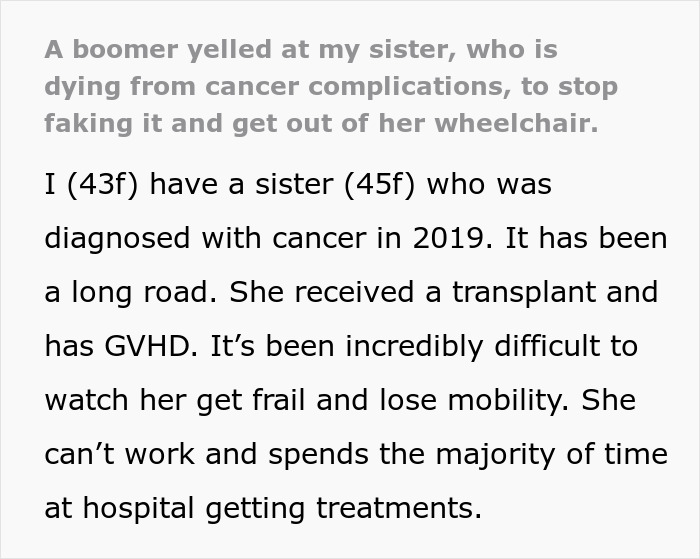
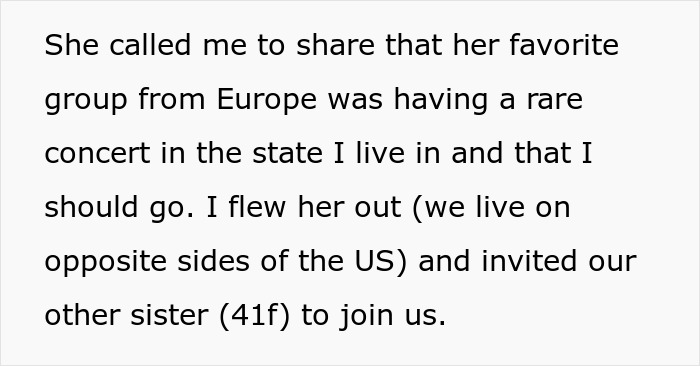
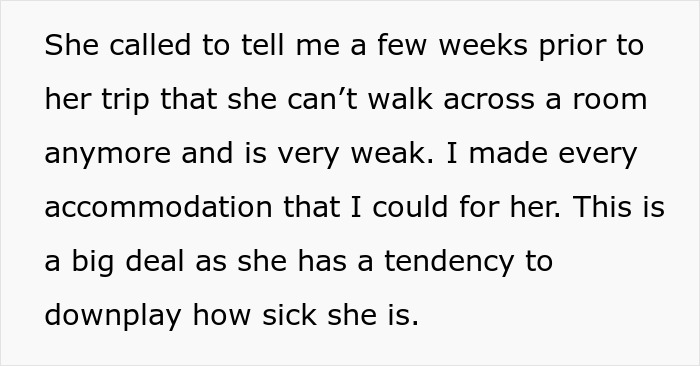


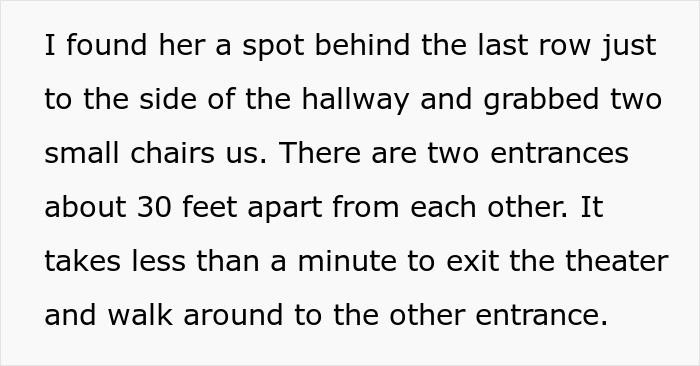
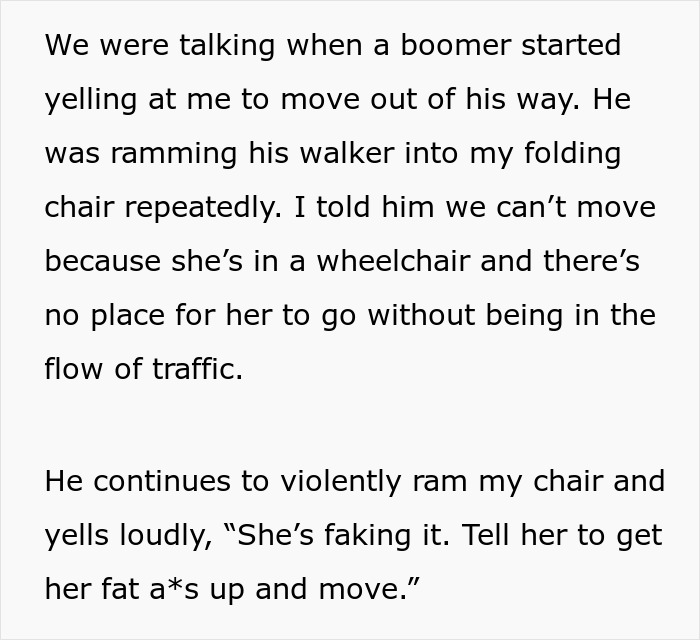
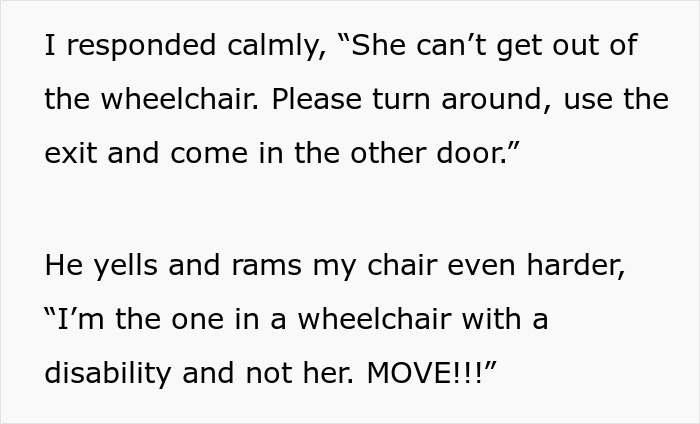
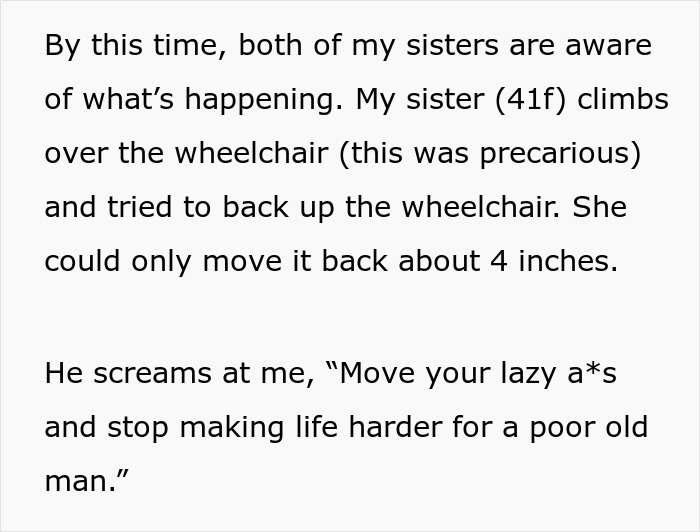


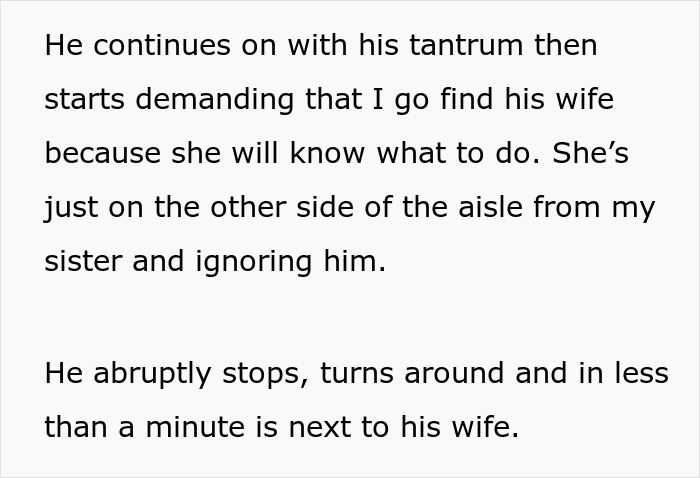

Image credits: dentgirl

Image credits: Andrea Piacquadio / pexels (not the actual photo)
Because of such interactions, entitled people are often leading more miserable lives than others
According to therapist Dr. Steven Stosny, who has treated over 6,000 clients for various forms of anger, abuse, and violence, confronting or arguing with people like this old man creates pointless power struggles, which only increase their sense of entitlement.
Therefore, a better approach, Stosny says, is to ignore their assertions of entitlement and act according to our own sense of fairness.
The author of the post and her sister appear to have embodied this principle by choosing not to escalate the already difficult situation but rather to diffuse it as calmly as possible.
However, those who keep arguing with the world aren’t necessarily “winning” at anything. On the contrary, entitlement may lead to chronic disappointment because, as researchers from Case Western Reserve University have observed, it can throw people into a “perpetual loop of distress.”

Image credits: Curated Lifestyle / unsplash (not the actual photo)
They reached this conclusion after analyzing more than 170 academic papers where they found that people who possess high levels of entitlement consistently fall victim to a three-part cycle: first, they don’t always get everything they think they deserve, leaving them constantly vulnerable to unmet expectations. Those unmet expectations are then perceived as injustices, leading to volatile emotions, including anger and sadness. Finally, to justify those emotions, entitled people reassure themselves of their own specialness. This might help them feel better temporarily, but in the long run, it keeps them imprisoned in the process.
“At extreme levels, entitlement is a toxic narcissistic trait, repeatedly exposing people to the risk of feeling frustrated, unhappy, and disappointed with life,” says lead author of the study, Joshua Grubbs, Ph.D.
“Oftentimes, life, health, aging, and the social world don’t treat us as well as we’d like. Confronting these limitations is especially threatening to an entitled person because it violates their worldview of self-superiority,” Grubbs adds.
As the story went viral, people have rallied to express their support for the sisters
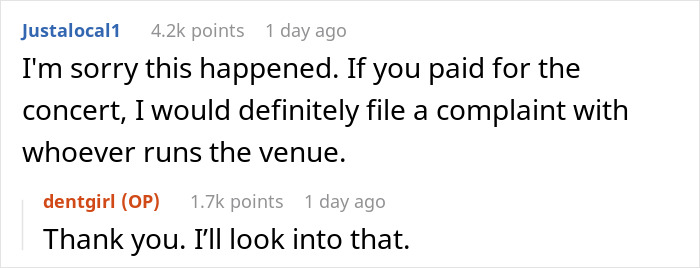


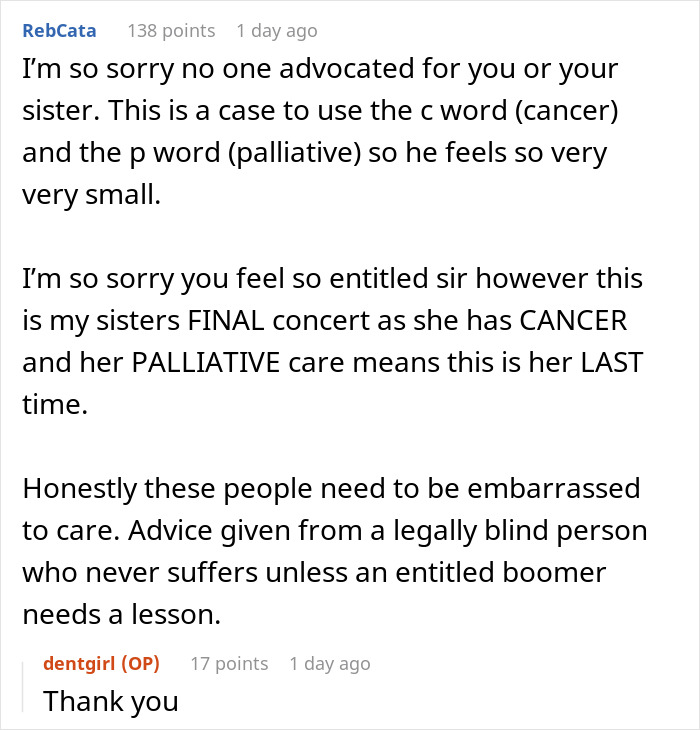




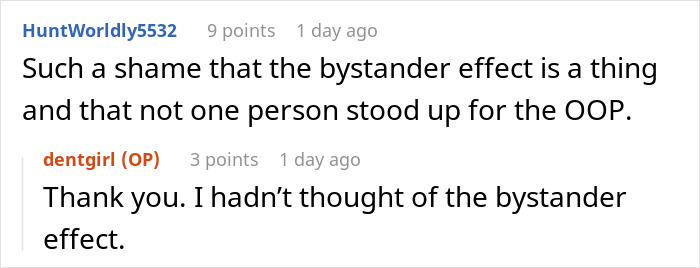
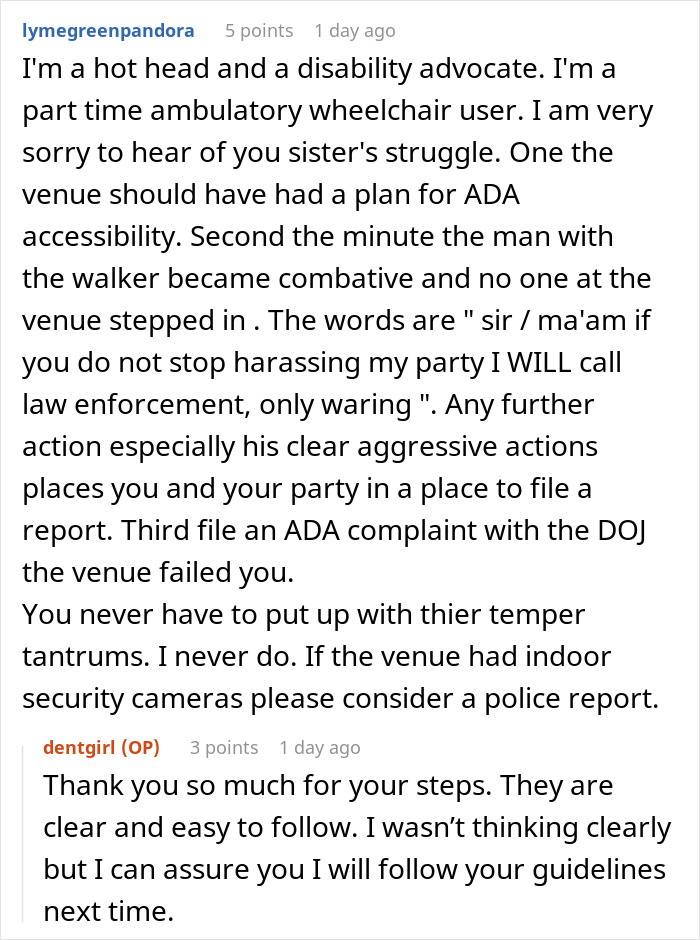
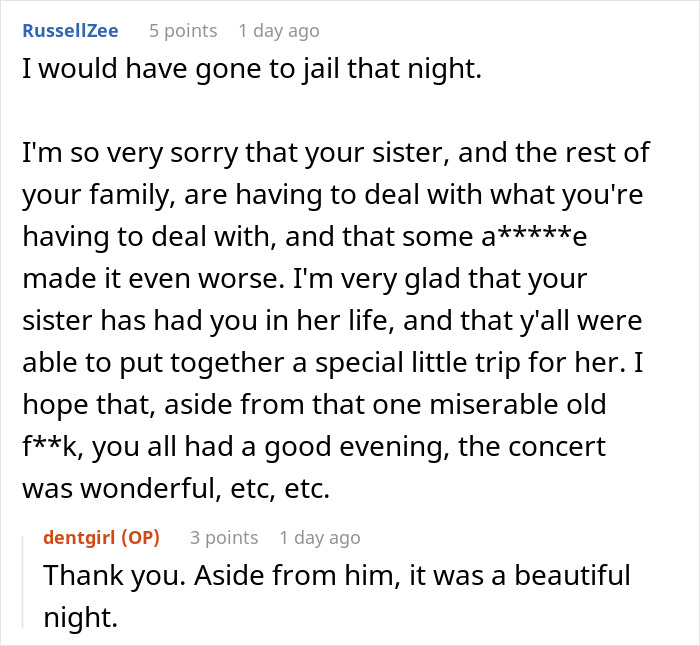
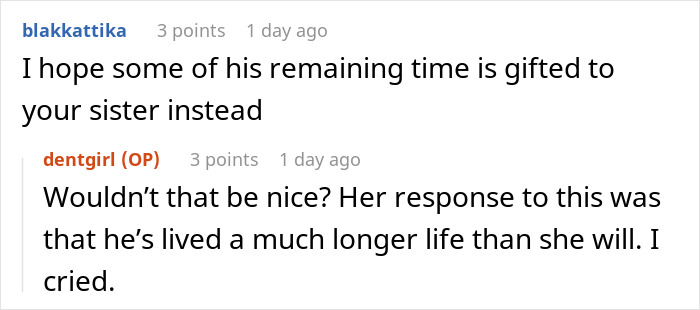



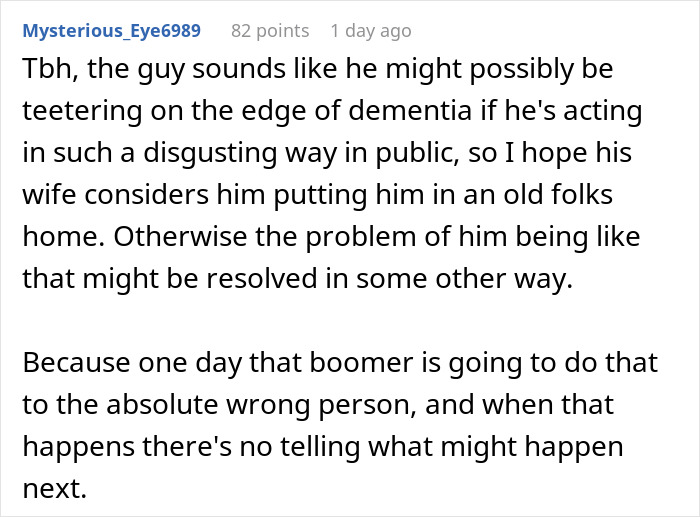
Some shared their own similar experiences

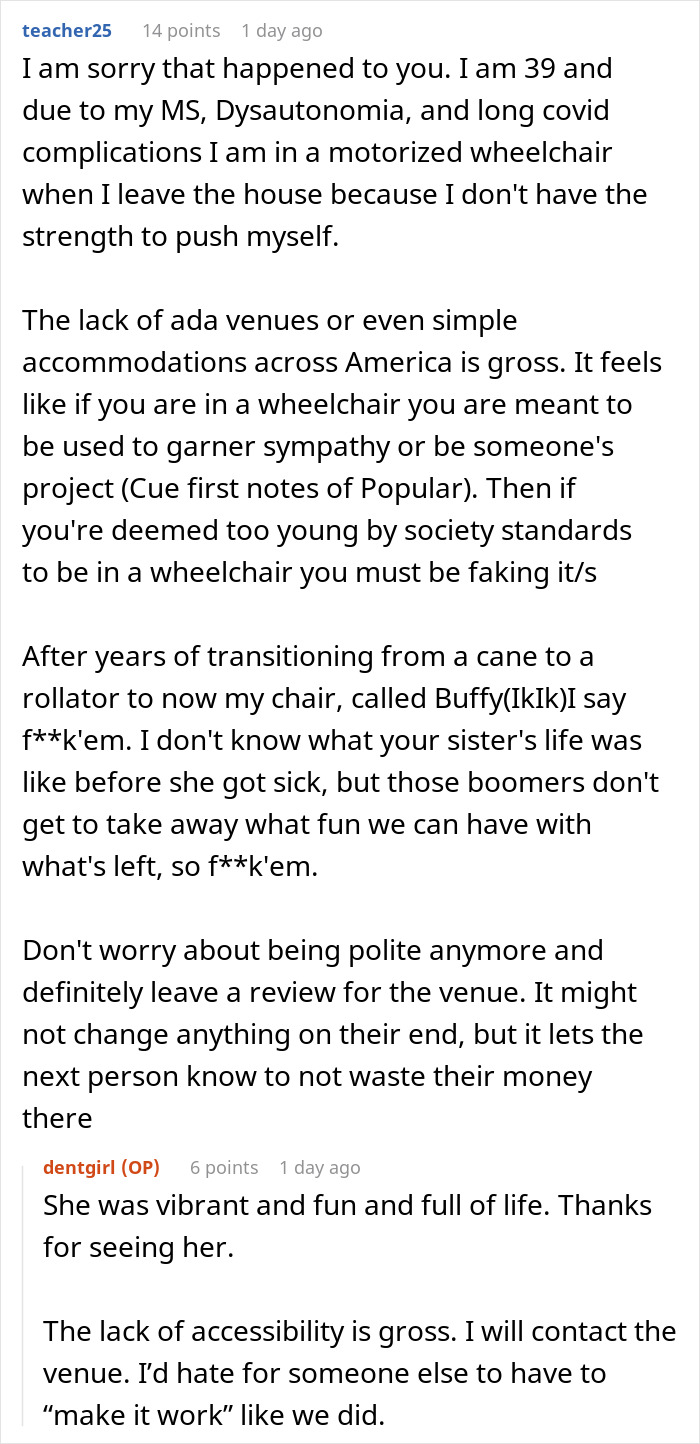




After the author of the post heard back from the concert organizers, she posted an update

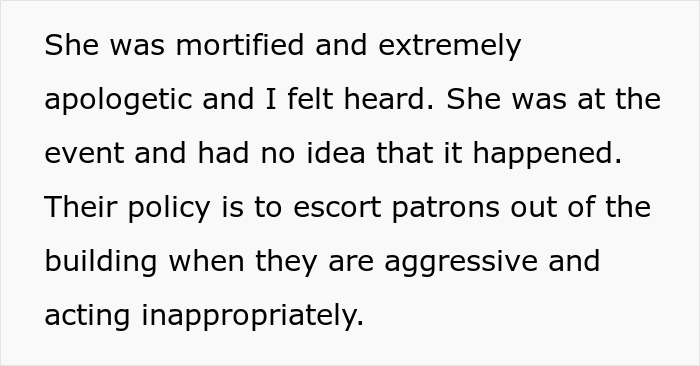
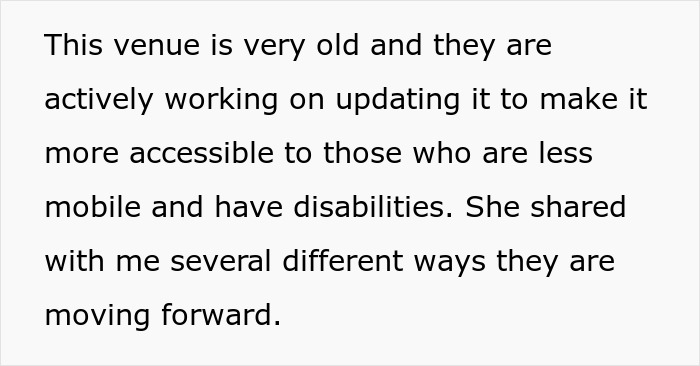
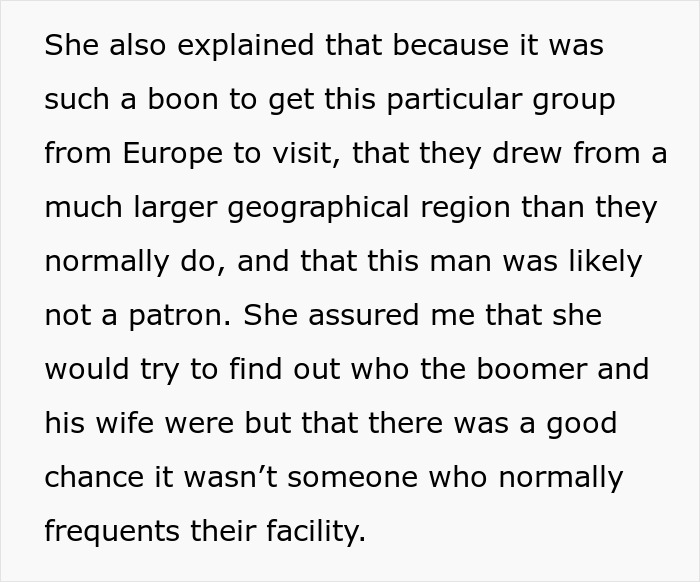
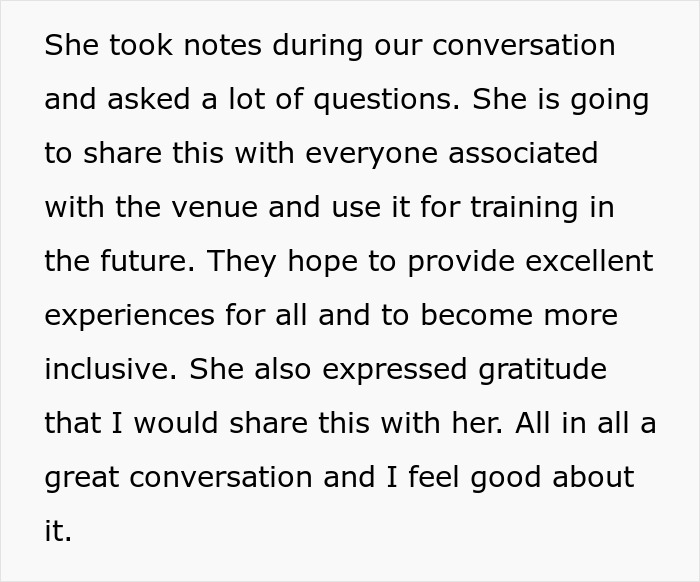


Post Comment
No comments